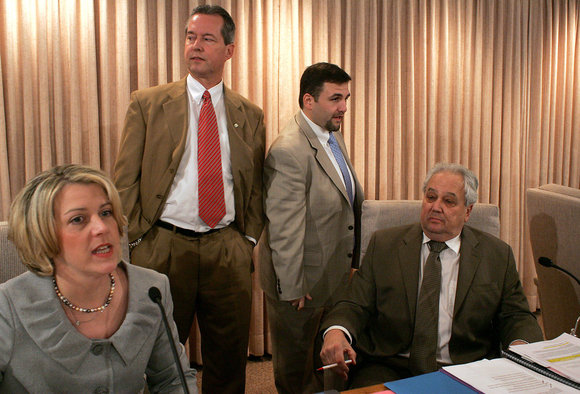I waited to post on this until after the election yesterday. It comes as no surprise that John Tedesco won the run-off in Wake County’s district 2. There were 3 candidates, John won 49.99% of the vote in October. Because he failed to get the required 50.01%, a run-off was required. However, his opponent withdrew leaving John an easy path to victory.
So it’s official. Control of the board has moved from those who favor diversity to those who favor neighborhood schools. Time will tell on the ability of the board to turn this ocean liner quickly, but I am sure that the look and feel of the district is going to change at least some and maybe significant.
Anyway, with that said, there was an interesting piece the other day in the News and Observer regarding diversity in the county.
I wasn’t part of the movement 30 years ago; shoot, I was 11. But the thinking was that to help the black community, you had to bus some of the minority students out and move some of the white kids in; busing. From a macro-economics standpoint, I can see the reasoning. However, the white families didn’t wanna bus their kids. And, ironically, neither did the black families. This unique and almost unanimous disapproval caused much dissent among the families impacted. However, Wake was able to continue this practice until a ruling made it illegal to assign students based on race.
Time for a new plan. Going back to the drawing board, the district saw that race trended along socioeconomic lines. And because the previous ruling didn’t limit busing based on income, a new day dawned. Now, here is where I am a bit cloudy. I am not sure of the thinkers in the district understood what they found. I’m not sure if they were still trying to assign based on race and simply found a loophole or if they really were trying to identify at risk students. Data shows that when normalized for income and other risk factors, black kids achieve at the same levels as do white kids. Which is, of course, no surprise.
But the real kicker is that achievement trends strongly with income. And low-income kids come from very high at risk families. What the district should have done was announced that race based busing was not the secret sauce after all. Rather, it was at risk busing that they really were after. And income is a very large indicator of academic achievement.
Back to our news article.
An analysis of school system data by The News & Observer shows that many of the county’s neighborhoods, especially in suburban areas, have become relatively racially diverse. Available statistics indicate that less than 20 percent of Wake neighborhoods are more than 75 percent minority, and slightly more than a third appear to be 75 percent or higher white. Census data from 2000 showed a similar situation, spurred by growth and the entry of minorities into the middle class over the past few decades.
This seems like good news. In Wake County, at least, we have a population that has mixed together well. And from a pure social perspective, I think that’s a tribute to our community. Not only that, but the mix of ideas and cultures only serves to make us a better and stronger community.
But when we look through the lens of income, the view is drastically different.
But The N&O’s analysis also shows a county split by income into halves. If all children went to their neighborhood schools, poor students would cluster in the county’s eastern half while students from more affluent families would be concentrated in Wake’s western side.
The N&O analysis, using neighborhood-level demographic data collected by the school system, shows that in the vast majority of northern and western Wake neighborhoods, fewer than 20 percent of students receive free and reduced-price lunches. On the other side of the line, in eastern and much of southern Wake, all but a handful of neighborhoods have more than 20 percent economically disadvantaged students.
And this is where a change in assignments has to occur very carefully. I don’t think that any of the pro-diversity crowd feels that we need racially diverse classrooms to help people learn, I think they feel that we need economically diverse classrooms to help people learn. And just like it did 30 years ago, I am afraid that fact will get overlooked in the analysis.
The challenge for the board is not small. The market divides people very well, and I am a proponent of that market.
In Wake County, the strongest divider may be the price of real estate. For all their racial diversity, neighborhoods such as Cary’s Park Village has only students whose family can afford a home valued at $200,000 or more.
You simply are not going to have a lot of poor kids going to these high dollar neighborhood schools. Maybe that’s why parents moved to those neighborhoods to begin with; because the school is strong and well supported. Probably. I know that when we oved into our house that was a concern.
So we’ll see. I’m not scared so much that we are changing. The current system has its flaws. What I am concerned about is that the underlying logic behind the changes won’t have changed much in 30 years.

